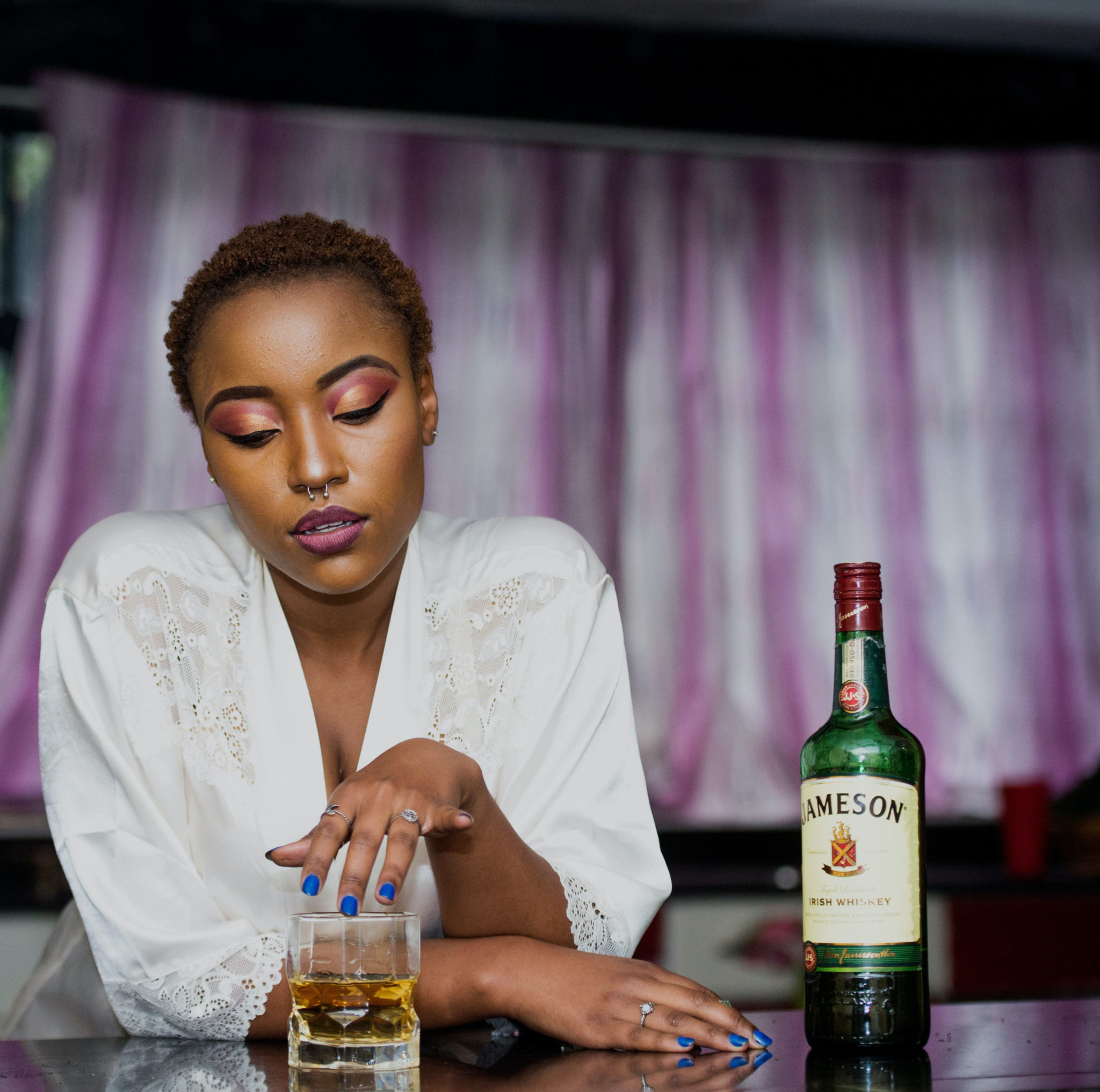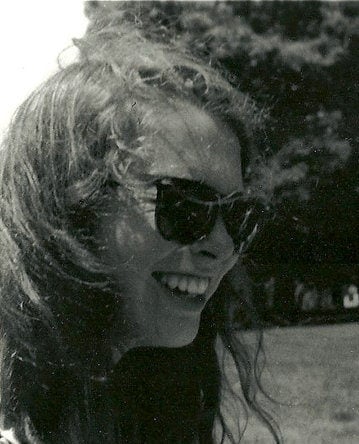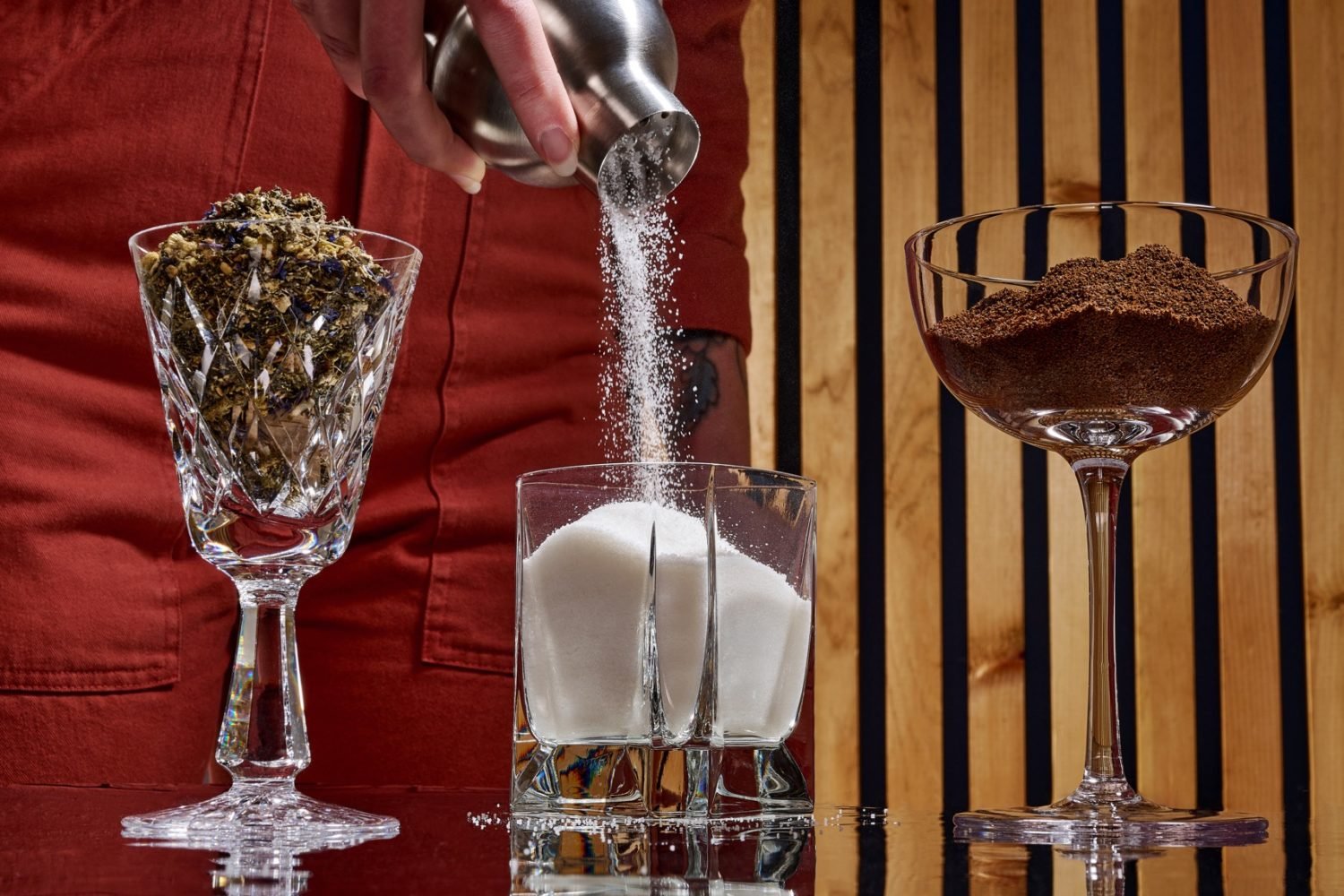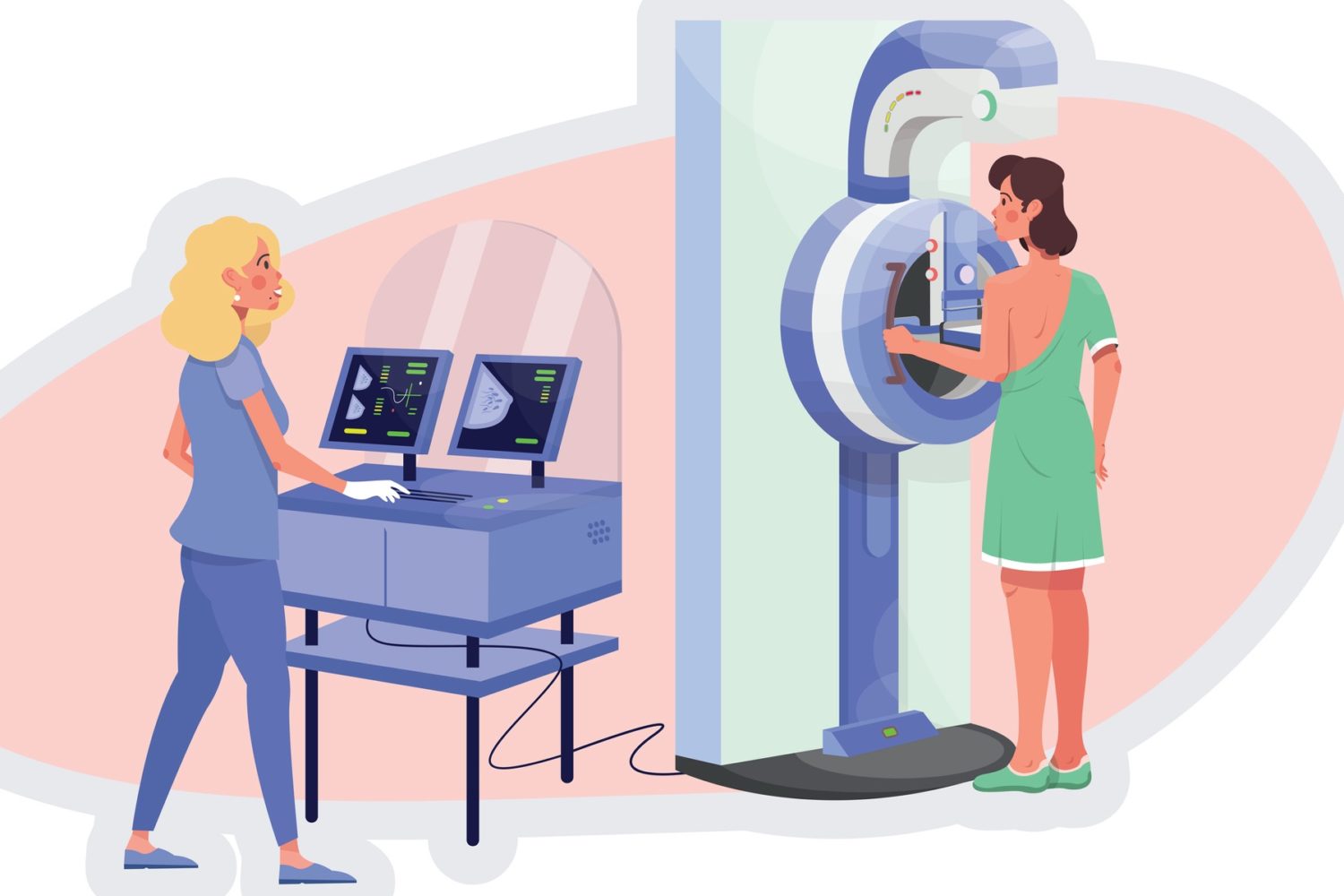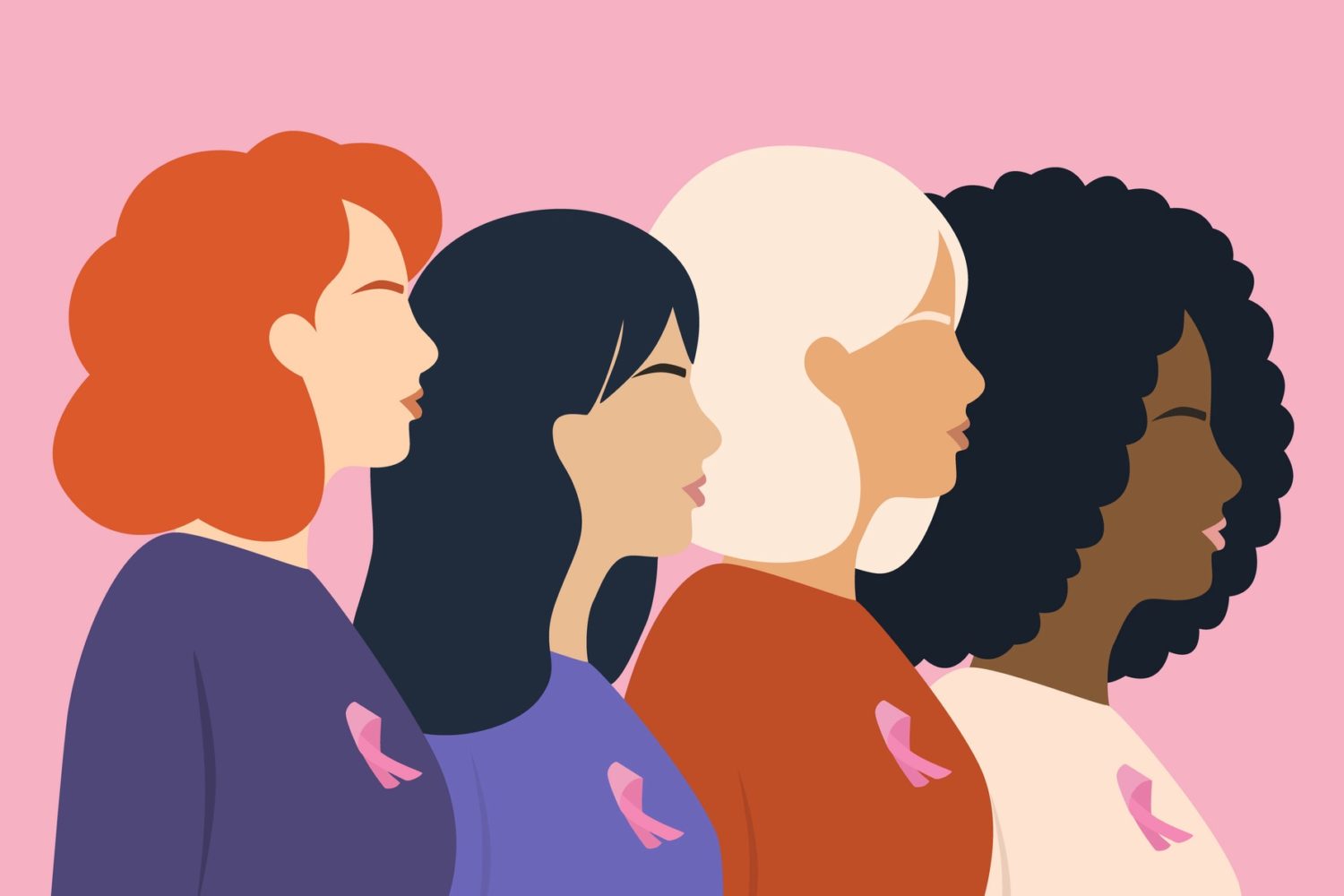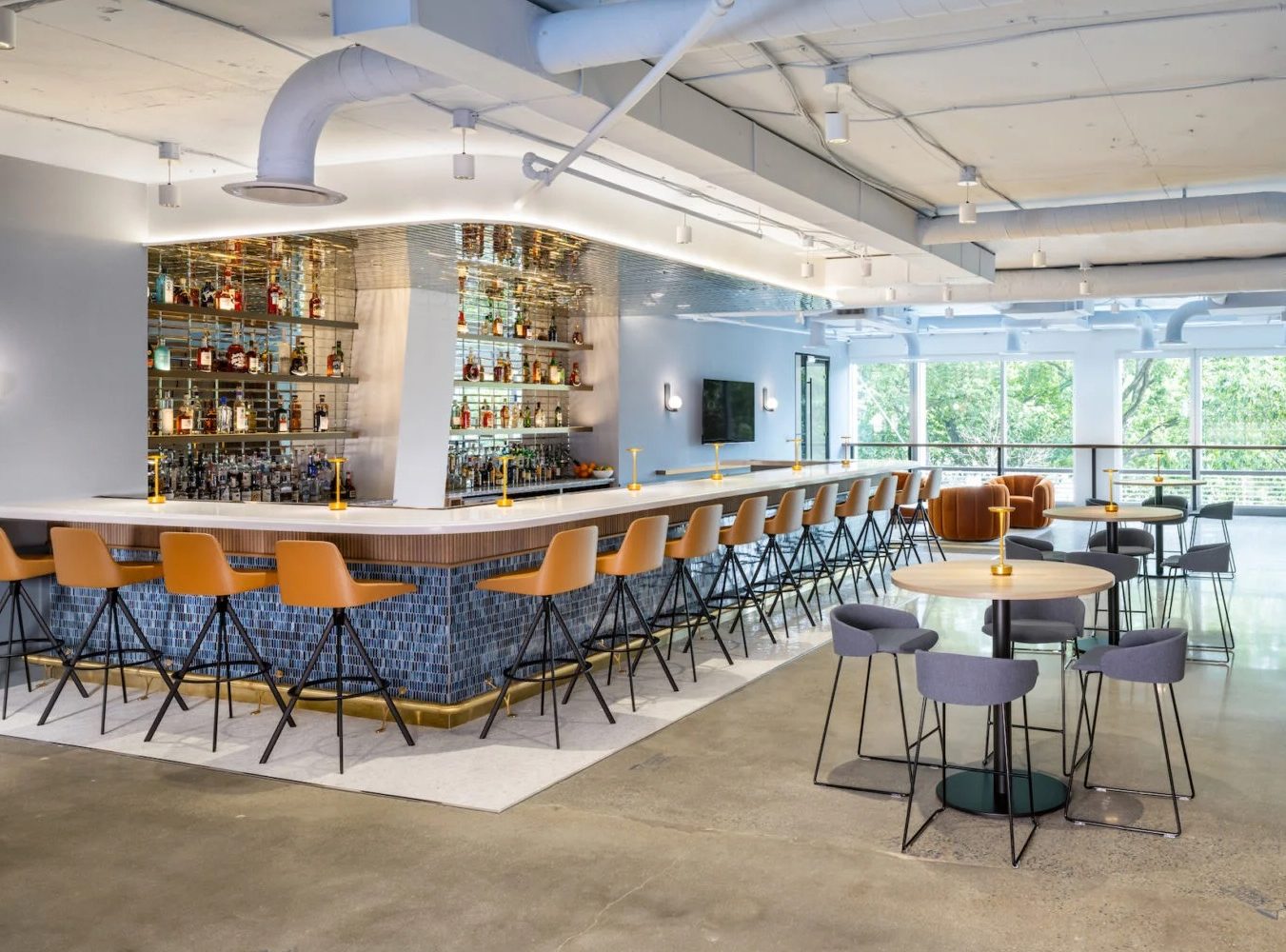A list of women—fictional and real—in pop culture who have recently given up alcohol: Miranda Hobbes, who, in the Sex and the City reboot, goes cold turkey after drinking more during the pandemic; celebrity foodie/model Chrissy Teigen, who began publicly talking about her sobriety journey last year; and model Bella Hadid and Goop founder Gwyneth Paltrow, both of whom announced they’d almost entirely stopped indulging.
These names are emblematic of a larger trend: women cutting back on or eliminating alcohol from their lives. Some reevaluated their relationship to booze after drinking more during Covid—a 2020 Rand Corporation study found that women increased heavy drinking by 41 percent at the pandemic’s start. Others found themselves imbibing less or not at all as the pandemic eliminated social opportunities for partaking.
This trend has coincided with the rise of the “sober-curious” movement—i.e., people significantly cutting back on their alcohol intake but not abstaining entirely. Sober-curiosity was underway pre-Covid and isn’t exclusive to gender identity or age—though millennials and Gen Z are drinking less than previous generations—but it has particularly resonated with women. That’s likely due in part to the pandemic.
“Women often have an affective disorder [like depression] prior to the substance-use disorder,” says Laura Winn, a New York City psychotherapist who sees DC patients and specializes in substance use. “So as affective disorders started to skyrocket [during Covid], particularly with women, we’re kind of seeing that correlation happen with the substance use.”
It’s also helpful that there seem to be more resources for people who want to stop. Online sober-curious communities such as No Booze Babes and the Sober Black Girls Club both have tens of thousands of Instagram followers. Sales in the booming nonalcoholic-drink world spiked by 33 percent between 2020 and 2021, according to Nielsen data, and the research group Fior Markets says the industry is projected to hit $1.7 trillion by 2028. Meanwhile, books such as Quit Like a Woman have become New York Times bestsellers.
Laura Silverman, who runs the group Booze Free in DC—80 percent of whose followers are women—says the pandemic’s mental-health crisis only upped sober-curiosity’s momentum: “It’s just kind of this perfect storm.”
Sam Kasten, who runs the local spirit-free bottle shop Umbrella Dry Drinks, reports that most customers are women who have cut back during Covid. “For a long time when someone said they didn’t drink alcohol, people’s response was ‘Oh, you must have a problem.’ But I feel like that’s changing,” Kasten says. “People being more sober-curious has really helped because it also shows that you don’t have to be fully sober. You can do whatever is best for you.”
Ramping Up, Then Cutting Back
The pandemic especially affected women with kids—on top of child-raising duties, they’ve dealt with pandemic stress, Zoom school, and WFH life. A study by the research institute RTI International says women with kids under five increased their drinking by 323 percent in 2020.
Emily Keith was finishing maternity leave when Covid hit. Prior to that, the 36-year-old, who lives in Arlington and works at Politico, would often come home and have a cocktail plus two or three glasses of wine. She paused while pregnant and breastfeeding, but like a lot of people, she felt that initial pressure to drink more after the pandemic started. “There was this culture at the beginning of Covid—everyone jokes about the breadmaking, but for me it was friends ordering a lot of wine to be delivered to their door,” she says. (Keith herself bought a case of Trader Joe’s wine when lockdown came.)
But once it became clear Covid wasn’t going to be a two-week thing, she realized she couldn’t sustain a higher drinking rate. She also didn’t like how the pandemic boosted “mommy wine culture.” (Think wineglasses that say mommy’s juice or mothers showing up to the playground with rosé in a thermos.) “The first few years of [my son’s] life being consumed by the pandemic—it was like an extra responsibility on me to take care of him and make sure [his life] could be as normal as possible,” says Keith. “The alcohol culture just wasn’t worth it.” Now she drinks only on weekends, when she has one or two glasses of wine. She sleeps better and finds it easier to maintain her weight.
Gwen Grigsby likewise found herself drinking more. Without the structure of heading to the office or the gym and seeing friends, the 48-year-old Capitol Hill accountant and mother realized it was too easy to grab wine to combat loneliness and sorrow. “The days started to kind of blend together,” she says. “Every day started feeling like a weekend.” Grigsby, who before Covid might have had two glasses of wine on weekend nights, was now indulging in two glasses four nights a week and starting earlier on weekends.
The increased consumption made it harder to go on her morning walks—she was groggy, and the alcohol inflamed her nasal passages (she has asthma). So she stopped the nightly wine in September 2021 and has had only two glasses since. She reports she now has lower stress and cholesterol, and her sleep and energy levels are better.
Caroline Orr had a similar experience. The 30-year-old, who lives in Navy Yard and sells software, realized that the frequency and intensity of her drinking had picked up—Covid meant forgoing bars for hanging out at friends’ houses, where it’s easier to pour another drink. Orr would have two to ten drinks when she was indulging. She added “Sunday fundays” to her routine.
She hit a pivotal point last September. “I woke up and was so hung-over, and I was like, ‘I just can’t feel like this anymore,’ ” she says.
Orr has completely stopped and doesn’t plan to pick it back up: “My base state is happier. I feel like I am able to be more patient and more kind to myself, which then makes it a lot easier to be patient and kind with other people. I think, overall, it really has just made me feel so much better about myself.”
“What is even the point?”
Other women had the opposite experience at the start of the pandemic: They drank less or not at all when social gatherings stopped. The habit has continued.
Breah Dean, a 28-year-old project manager who lives in NoMa, had wanted to reevaluate her relationship with alcohol for some time, as she often didn’t like who she was when she drank. Because she did so only socially, the initial lockdown gave her the chance. “It was like, Okay, there’s nobody around to drink with. So what is even the point?” she says.
As socializing came back, Dean reintroduced drinking but at a reduced rate. She now indulges two or three times a month, when she might have three drinks, as opposed to pre-Covid, when she’d have three to five drinks five times a month. Dean thinks she would have slowed her pace eventually, but the pandemic sped up the timeline. Since she has cut back, her sleep, energy, and eating have improved, she has saved money, and she doesn’t miss the fog of trying to remember what was said after that last drink: “That is the part that bothered me—the not remembering. At the end of the day, how am I spending my life if I don’t remember half of it?”
As a sommelier, 33-year-old Brookland resident Felicia Colbert had seen firsthand how toxic alcohol culture could be. During Covid, she decided to switch jobs and now works in marketing. Instead of the several bottles of wine a week she consumed during her full-time somm days, she now has about two drinks monthly.
Colbert, who identifies as both Black and Dominican, says that having the time, space, and resources to make decisions that positively impact your health is a privilege not everyone enjoys: “Health and wellness is something that is a luxury in this country. For those who have sat at the lowest levels of systemic racism, poverty, [and] resources, wellness is not a priority.” It doesn’t help, she adds, that the wellness industry, which intersects with the sober-curious movement, is largely made up of white women—and some people of color might not see a place for themselves in it.
Gigi Arandid, who is opening the alcohol-free space Binge Bar on H Street this summer, agrees that it may be harder for BIPOC people to talk openly about their relationship to alcohol. “[It’s] more taboo for women of color to come forward about this,” says Arandid, who’s been sober for five years and is of Filipino descent. “We are not just worried about the shame and the guilt that is going to come forth from society, but from our very own family and from our very own cultural background.”
Looking Forward
While there are contradictory studies about whether drinking even in moderation is good for you, women are more likely to experience side effects from excessive drinking than men—including weaker immune systems, liver or brain damage, cardiovascular issues, increased anxiety or depression, and heightened risk of breast cancer.
Despite the health consequences, society is still largely centered around drinking. “Alcohol is a part of everything that we do,” says Kasten. “We drink at weddings, we drink at funerals, we drink when we’re happy, we drink when we’re sad. We drink when we’re stressed, we drink when we’re celebrating something. It’s everywhere.”
While Covid allowed women to rethink their alcohol consumption, they’re reentering a world where booze is omnipresent. And some are worried about managing their newfound sober or sober-curious approaches when office happy hours and packed social schedules are a thing again.
“What I fear the most is going back to that work-alcohol culture where every outing is at a bar or involves drinking,” Keith says. “The DC culture of drinking is so strong and can be really toxic.”
While sobriety is becoming more mainstream, a social discomfort is still associated with not partaking, says Winn, the psychotherapist. “It can be challenging to make that transition because of the stigma associated with sobriety,” she says. “People are fearful of being left out of things. They’re not going to get invited to the bar when people go out, or if they are at the bar, are they going to get judged for not drinking?”
But, as Kasten points out, if the alcohol-free momentum continues, the “Why aren’t you drinking?” questions might disappear.
“I feel like ten years from now, it’s going to be normal for people to not even question whether or not you drink alcohol,” she says. “It’s not even going to be a thing.”
This article appears in the May 2022 issue of Washingtonian.

